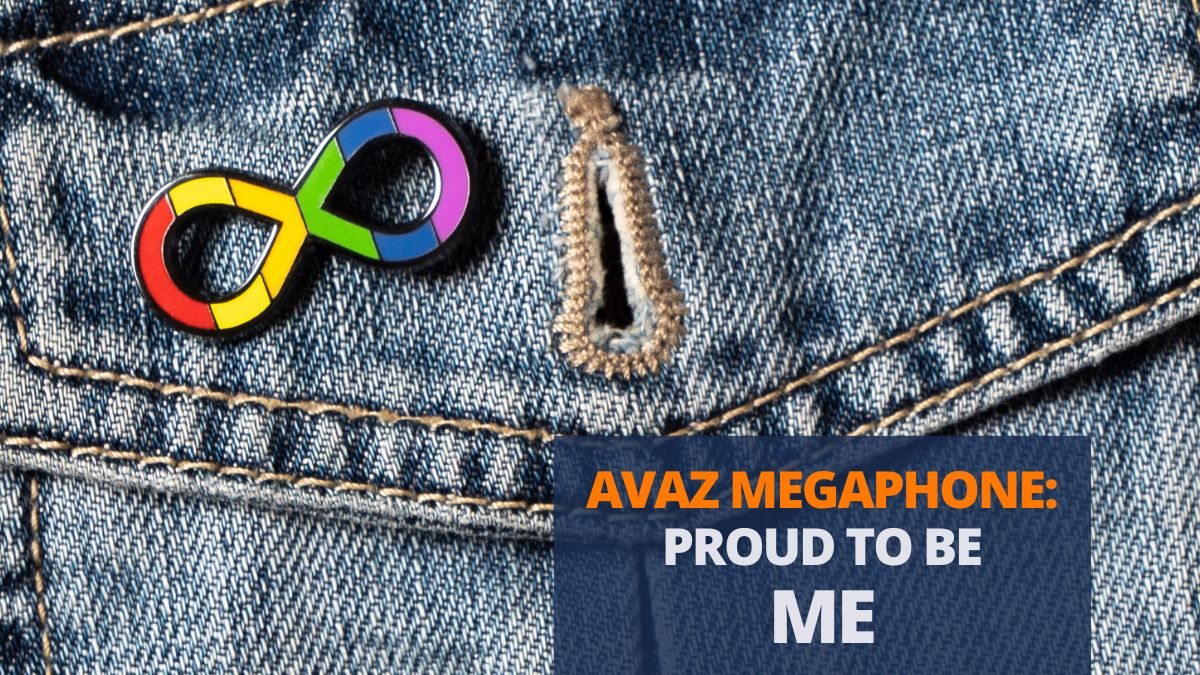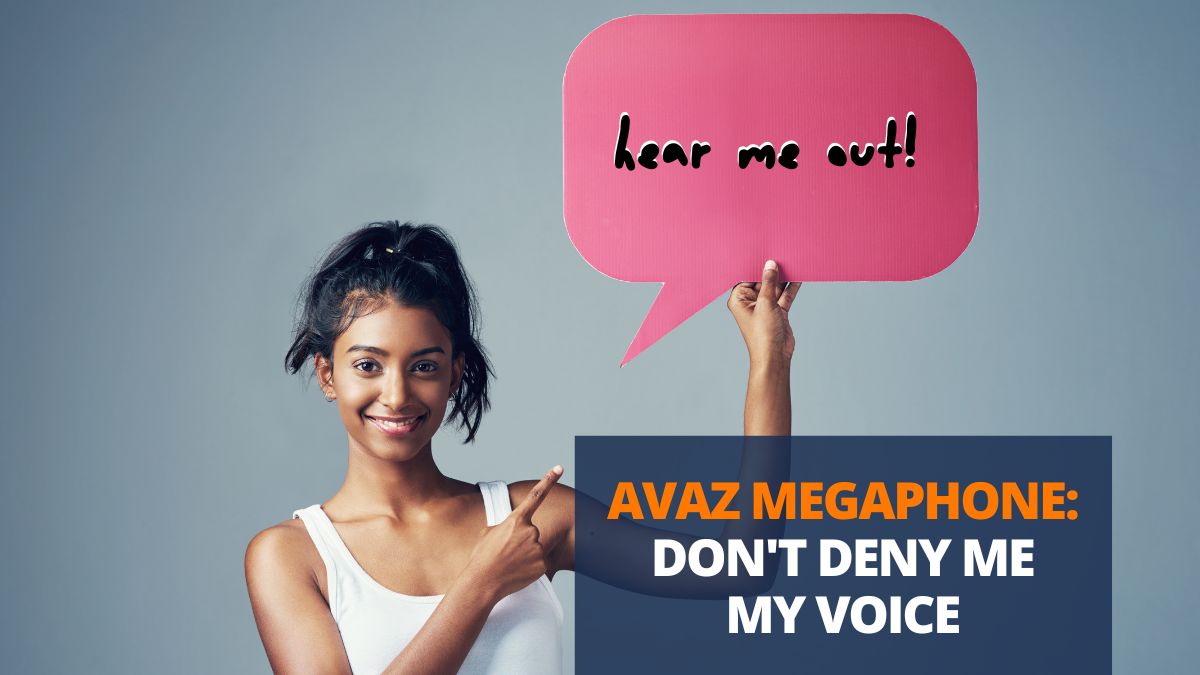At 21, Ummul Khair decided that she no longer wanted to stay at home. She picked up the phone and dialed an inquiry number. But it was not an easy task to find Vidya Sagar (formerly – The Spastics Society of India). Many calls later, she boarded a train to Chennai. This is the journey that changed her life and made her the person she is today!
Almost two decades later, Ummul is now the Coordinator of the Disability Legislation Unit (DLU) at Vidya Sagar. She works on advocacy for people with disabilities. A student of Sociology and a graduate from the Tamil Nadu Dr. Ambedkar Law College, Ummul now eagerly awaits her enrollment in the Bar Council. Ummul is an independent, outspoken, and knowledgeable woman who aims to make our community more accessible, one audit at a time.

Team Avaz had the privilege to interview Ummul and get to know more about her, her journey and her work. So sit back and get inspired by the life of this woman of substance!
Team Avaz (TA): Who is Ummul Khair? What is she like as a person?
Ummul: I have a disability. Yes! But I’m not a disabled person. I have my strengths and weakness and I would like others to accept my abilities. Accept me for who I am and accept me as a Person with Disability.
I used to be an innocent child and always depended on others but now I am able to help others and that makes me happy!
TA: Tell us a bit about your childhood? Can you please share some of your fondest memories?
Ummul: As a child, I was always on the bed. My mother used to carry me to every place. I didn’t own a wheelchair. So, I never had the chance to leave my home on my own. My parents worried too much because of my disability and never left my side.
On the bright side, I was favored by my parents more than my brother. Whatever I wished for, was immediately done! But I secretly yearned for education; to be independent and to help and care for others!
I don’t remember most of my childhood, but I do know that I loved eating curd and my favorite candy, Gems. I always looked forward to playing with my cousin!
TA: Starting your education at 21 needs lots of courage. Can you please tell us what motivated you?
Ummul: I wanted to know what the world was like. I wanted to meet people and make friends. Since I spent my childhood inside my home, I never knew how to handle any situation nor did I know how to interact with people. I wanted to know what rights I had as a woman and as a woman with a disability.
I couldn’t go to school because my parents were overprotective. It did not help that people around me believed education was of no use to me. For many years I saw my cousins reading, but never had the opportunity to read those books. I remember reading the subtitles while watching movies and soap operas.
There was this particular soap where the protagonist was a woman with a disability. It portrayed her journey and how she overcomes the challenges. Watching it day after day, kindled my spirit and I wanted to become like her! I wanted to break the stereotype.
“To express my thoughts, come out of my boundaries, and break the stereotype, I wanted to pursue my education.”
TA: Talking about education, you did Sociology and now you have done Law. Who or what inspired you to choose this path?
Ummul: Do you agree that Rights come by birth? I didn’t know my rights for a long time. I thought it was rude to refuse a favor(though I never asked for it). But now, I don’t accept any favor unless I have requested it.
I believe in human rights and that’s what I fight for. Not just for persons with disability but for everyone! This is the reason behind me taking up Law – because no one should be denied their rights.
Helen Keller has been a huge inspiration as well. Her writings have had a great influence on me.
TA: What, according to you, has been the biggest challenge life has thrown at you so far? And how did you overcome it?
Ummul: I used to speak only in Hindi or Urdu. Hence learning a new language, English, and improving my proficiency in it was a challenge. Also, at times, I forget. Imagine being a forgetful lawyer! That’s my biggest challenge. (laughs)
On a more serious note, accessibility is another challenge. Not only for me, but also for every person with disabilities.
The attitudinal barrier is another predominant challenge that needs to be addressed immediately. When I was at Madras High Court for an access audit, the security person stopped me from entering a particular room as it was not accessible. But that was exactly the reason why I was there!
People take one look at me and think that I am struggling in a wheelchair.
“People fail to see ME, as the disability is more visible to them!”
TA: You along with the Disability Rights Alliance played a primary role in making the Besant Nagar and Marina beaches in Chennai accessible for wheelchair bound folks – Can you tell us more about this effort?
Ummul: Pushing a wheelchair on the sand is very hard. I used to sit near the footpath and a volunteer would have to stay back for me – every time I wanted to visit the beach! These experiences sparked the idea to work towards making beaches accessible for people with disabilities.
I researched various accessibility projects around the world. Then I started writing petitions to all the concerned authorities. But it was really hard to get their attention as I was a lone student. This is when I came to know about the Disability Rights Alliance (DRA). I collaborated with them and worked with Chennai Corporation as well. After lots of research, follow-ups, and processes we were able to celebrate World Disability Day at the beach with our students.
TA: What kind of changes would you like to see in our society? What is your vision of an inclusive society?
Ummul: Equal opportunities for people with disabilities. Every place should be made accessible. When I was in the US representing India for a one-month student leadership program, everything was accessible to me. I was able to go wherever I wanted to and that is something we should work towards.
My idea of an ideal inclusive society is where people with disabilities not only seek help but are also able to contribute to society and give back to those in need.
TA: That’s really a great vision! Thank you for sharing your thoughts with us. Before we close, is there any message you would like to share with our readers?
Ummul: Most certainly!
“Don’t ignore us; talk to us and not behind us.
Remember! Everyone is interdependent and no one is completely independent.
Everyone needs support, everyone needs suggestions. So value each other.
Give us the opportunities to show what we are capable of. ”
Ummul signs off by telling us about her rappelling and parasailing experiences and how she loves to take risks and not give up at the face of adversaries! Team Avaz was inspired by this courageous woman who fights for human rights and for the rights of people with disabilities. More power to you Ummul!
Together, let us strive to Make Every Voice Heard!



